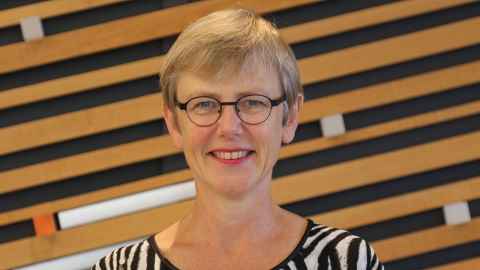Gillian Dobbie appointed Marsden Fund Council Chair
9 December 2022
Computer scientist and data-driven professor Gillian Dobbie is the new Marsden Fund Council Chair.

Trailblazing computer and data scientist Professor Gillian Dobbie has been appointed the new Chairperson of the Marsden Fund Council by the Minister for Research, Science and Innovation, Ayesha Verrall.
The Council comprises eminent researchers who assess funding applications for the Marsden Fund, which this year, invested $77.391 million in support of 113 research projects.
Marsden is regarded as the hallmark of excellence for research in New Zealand, and Professor Dobbie has convened the Council’s Mathematical and Information Sciences panel since 2015. She succeeds Professor David Bilkey, who has chaired the Council since 2018.
Professor Dobbie says she's looking forward to leading the council and working with others to support important research.
"Fundamental research is an investment in our future and important for safegaurding and sustaining our society. Its benefits are often only visible years or decades later. Aotearoa New Zealand has a strong track record of supporting fundamental researchers and I'm excited to work to continue this."
Dobbie was one of the first women to complete a PhD in Computer Science at the University of Melbourne in 1995, and although she has a broad understanding of computer science, her passion is directed at getting the most out of data, which includes how data can be processed efficiently, and the insights we can gain from data. Her current research focuses on machine learning, particularly data stream mining and adversarial attacks.
The Marsden Fund was established by the government in 1994 to fund excellent fundamental research. It’s a contestable fund administered by the Royal Society Te Apārangi on behalf of the Marsden Fund Council.
Marsden Fund research benefits society as a whole by contributing to the development of researchers with knowledge, skills and ideas.
The Fund supports research excellence in science, engineering and maths, social sciences and the humanities.